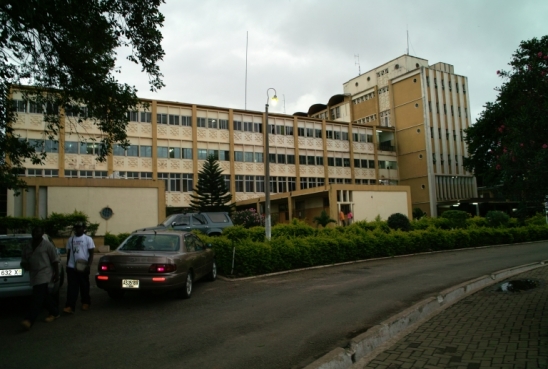Authorities at the Komfo Anokye Teaching Hospital (KATH) are sensitizing all the workers at the facility on the deadly Ebola disease.
There have been a number of suspected cases reported at the hospital, however tests conducted on the suspected patients have, so far, been negative.
The Head of Public Health Unit at the KATH, Dr Dennis Laryea told Citi News that the hospital wants to get all its workers, “both health and non-health officials” ready for any outbreak.
According to him, “health workers must understand and know about the disease and be able to know what to do in case they treat an infected patient.”
“In fact, they also need to know what to even look out for,” he added.
Dr. Laryea confirmed the hospital had received “some equipment and some protective gear” from the Ministry of Health, but stated that he was unsure whether they would be enough to effectively deal with an outbreak of Ebola
“I cannot say that it is adequate as the adequacy would depend on the burden we have to deal with,” he said.
“We could have a thousand and we may need two thousand and that would be inadequate. We have something now that if somebody is suspected of having Ebola, we can use to treat him,” he added.
Meanwhile, the Ghana Health Service says preparations are still underway to set up treatment centers in the Greater Accra, Ashanti and the Northern Regions.
The government announced that it would set up “treatment centers for medical officers in Tema for the Southern belt, in Kumasi for the Middle belt and in Tamale for the Northern Belt.”
The Director of Disease Surveillance at the GHS, Dr Badu Sarkodie told Citi News that the centres was being set up in Tema and Kumasi and work would start on a treatment center in Tamale soon.
He stated that all health centres in the country had the mandate to set up isolation centres in their facilities to deal with suspected cases but confirmed cases would be sent to the treatment centres.
No case of Ebola has officially been recorded in Ghana so far, but over 950 people have died from the disease in West Africa, in what the World Health Organisation has called a a global health emergency.
By: Edwin Kwakofi/citifmonline.com/Ghana


